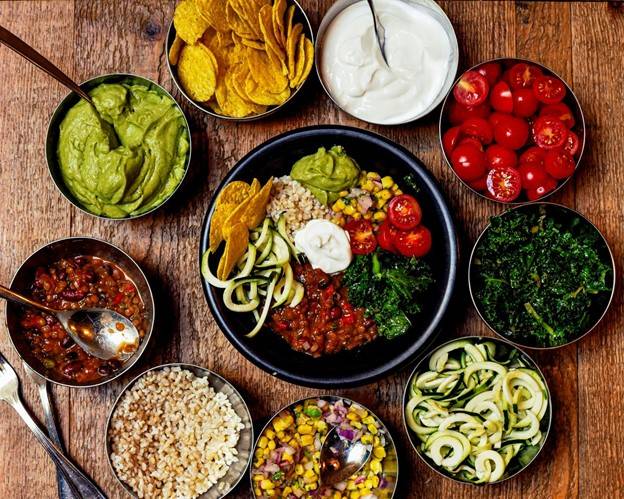
October 2021. This article is independently written by Shelby Golding. All opinions given are hers. Shelby has been certified as a personal trainer and nutritional specialist since 2007. In 2008, she found her passion for writing about these topics and hasn't looked back.

According to the USDA, the average American consumed 144 pounds of meat in 2017. Meanwhile, the recommended daily intake is about a pound a week. That means that the average American consumed nearly three times as much meat as is recommended for a healthy, balanced diet. (This recommendation completely excludes processed meats, such as spam, hot dogs, deli meats, beef jerky, and anything you would purchase from fast-food restaurants and large-scale restaurant chains.)
Thankfully, you don't have to give up meat completely to start reaping the benefits of a meatless diet. Meatless Mondays are a trend in the health and wellness sphere, but what are the benefits? If you are going to give up meat for a day, you should know why you are doing it.
Less Disease
Many of the studies that link the two are looking at the effects of processed red meat. Processed red meat usually contains a lot of trans fats created during manufacturing through the process of hydrogenation. Trans fats change meat's texture, consistency, and shelf life, but most nutritionists agree no amount is safe for consumption.
Lose Weight
Even a flexitarian (someone who is vegetarian most of the time but still occasionally eats meat and fish) can see weight loss benefits. This is a direct result of eating fewer trans and saturated fats- and replacing them with vegetables, fruits, and grains that are high in fiber, vitamins, and minerals. Meatless Mondays are the first step toward flexitarianism.

Save Money
Live Longer
While definitive evidence has yet to be discovered, many studies show a correlation between vegetarian/vegan diets and longer, healthier lives. One such study suggests that people with a meatless diet live longer on average, and men seem to benefit from the change more than women.
Save The Planet
Our meat-heavy diets contribute more carbon dioxide (CO2), methane, and nitrous oxide into the atmosphere than transportation and industry. Methane is produced in large amounts by the ruminant digestive process of cows and sheep (due to their four stomachs). It is also 34 times more potent than CO2 as a greenhouse gas.
Everything in Moderation
Always consult your physician before making any changes to your current diet.
And don’t forget to use your Kailo pain patch as you fine-tune your health! Patients report near-instant pain relief, and pain management experts theorize that Kailo works with your body’s natural electrical systems to communicate with your brain. Try it and see the results for yourself!
Sources:
https://www.ers.usda.gov/amber-waves/2019/december/us-per-capita-availability-of-red-meat-poultry-and-seafood-on-the-rise/
https://www.wcrf.org/dietandcancer/limit-red-and-processed-meat/
https://www.healthline.com/nutrition/is-red-meat-bad-for-you-or-good#TOC_TITLE_HDR_4
https://pubmed.ncbi.nlm.nih.gov/26143683/
https://pubmed.ncbi.nlm.nih.gov/26138004/
https://www.statista.com/statistics/1029664/interest-in-eating-meat-in-restaurants/
https://academic.oup.com/ajcn/article/109/5/1462/5435773?login=true
https://www.ncbi.nlm.nih.gov/pmc/articles/PMC4191896/
https://www.ncbi.nlm.nih.gov/pmc/articles/PMC7256495/






